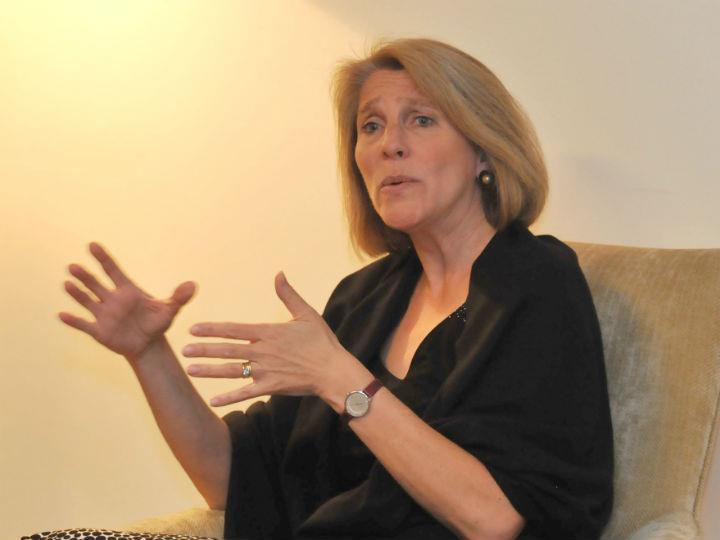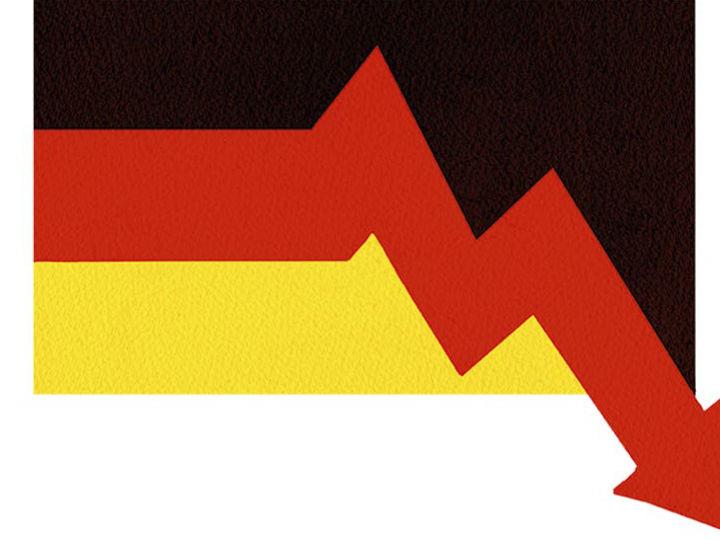by Sarah Lawton
Karen Donfried is the President of the German Marshall Fund of the United States. She previously served as the Senior Director for European Affairs on the US National Security Council from 2013 to 2014.
The spread of the coronavirus has brought travel bans and trade embargos on key medical supplies between Europe and the United States, adding more pressure to an already strained transatlantic relationship. Has the coronavirus accelerated the rift, or is this just the latest in the preexisting trend?
You are absolutely right that the transatlantic relationship was troubled before the coronavirus hit, and this has in many ways accelerated some of those trends. I would also note that both the uncertainty around the upcoming US election and how our response to the coronavirus plays out will affect the future of the transatlantic relationship in important ways.
Many countries have had a very nationalist initial response. President Trump has doubled down on his America First policy, but we have also seen European countries take a nationalist response in the first instance. While the EU asserted itself a month in, there are real tensions between member states about how best to manage this.
It’s challenging to talk about “Europe” in the context of the relationship with the United States. The French are preaching from the gospel of strategic autonomy, while the Merkel government is preaching from the gospel of strategic patience. Meanwhile, Poland feels an affinity toward Donald Trump and has doubled down on the US security guarantee, because of its concerns about Russia. So you have seen these different European responses, and the crisis is accelerating those in different ways. I don’t know if it is fundamentally changing them.
Are there signs that could make transatlanticists hopeful for greater cooperation and a better relationship in the near-term, particularly during the Trump administration?
I am a glass half full kind of person, and I believe that the transatlantic relationship is critically important to both sides. When it is not functioning, it is bad for the United States, Europe, and the world, because when the US and Europe work together, we can galvanise broader global action, which I would argue that we need during a pandemic.
Now in the near-term, it is hard to see that changing, but I think the longer this goes on, the evidence will mount that the only way we can manage a pandemic effectively is when we are working together. Whether we see President Trump reelected or if Joe Biden comes into the White House, transatlanticists should continue to put forward policy recommendations that we think will be forces for good.
In a recent article you wrote with former Ambassador Wolfgang Ischinger for Foreign Affairs, the two of you called for a renewed role for NATO in combating pandemics. Could you explain what role you see for NATO in this area?
Well that’s an example of Wolfgang and me trying to be constructive. One of the ideas was saying that experiencing this pandemic collectively should lead us to a broader definition of security and defence that includes public health and think about ways to respond to a pandemic. One idea was that since NATO has military supply stockpiles in various parts of the transatlantic geography, maybe we should stockpile health equipment for a future pandemic.
With the growing tendency towards national solutions in the US and some European countries, China has taken up the mantle as something of a global leader during this pandemic, sending masks and medical staff to acutely affected countries. Do you think this new role for China will last?
When things really started getting bad in March and the US opted out of playing a global leadership role, we saw the law of physics that we know: when there is a vacuum, it gets filled. In this case, China saw an opportunity to offer help to Europe by sending PPE and other supplies. Now as you know, there has been criticism, because it seems that some of the stuff didn’t actually work, but there’s no question that China scored a really important public diplomacy victory in stepping up in such a public way.
None of us know what the longer term impact of this crisis is on this global powershift that has been underway for a couple of decades. Thus far, my argument has been that the rise of China has meant a relative decline of US power, not an absolute decline. How does that continue? Some are arguing that at the end of the day this crisis might solidify China, while equally compelling analyses say this will be the end, but there are a lot of questions that we don’t know the answer to. We don’t know about what’s been happening inside China or what the longer term implication on the Chinese economy will be.
Some have suggested that the pandemic shows the limitations of democratic societies as the US and some European governments struggle to contain the virus, while authoritarian states can exercise more control over their populations. What do you think this kind of rhetoric means for the transatlantic relationship now and further down the road?
The corona crisis has accelerated this competition seeing this trend between liberal democracy and authoritarian populism. In many ways, it is testing both models, and I don’t think it’s clear yet who is winning in that struggle.
What are some of the stand-outs as you look around the world? Germany has seemed to manage this crisis in a very impressive way. There are no doubt a lot of factors at play, but Germany is also a leading liberal democracy.
Doing an initial stock-taking now would no doubt be premature, since there is a lot of this crisis yet to come, but we have some pretty compelling examples of democracies managing this crisis very well. Democracies that have the trust of their citizens, who are then listening to the government and following those instructions. That’s quite powerful. The method that is leading to that cooperation is not coercion or fear. It’s trust.
*first published in: www.euractiv.com




 By: N. Peter Kramer
By: N. Peter Kramer

